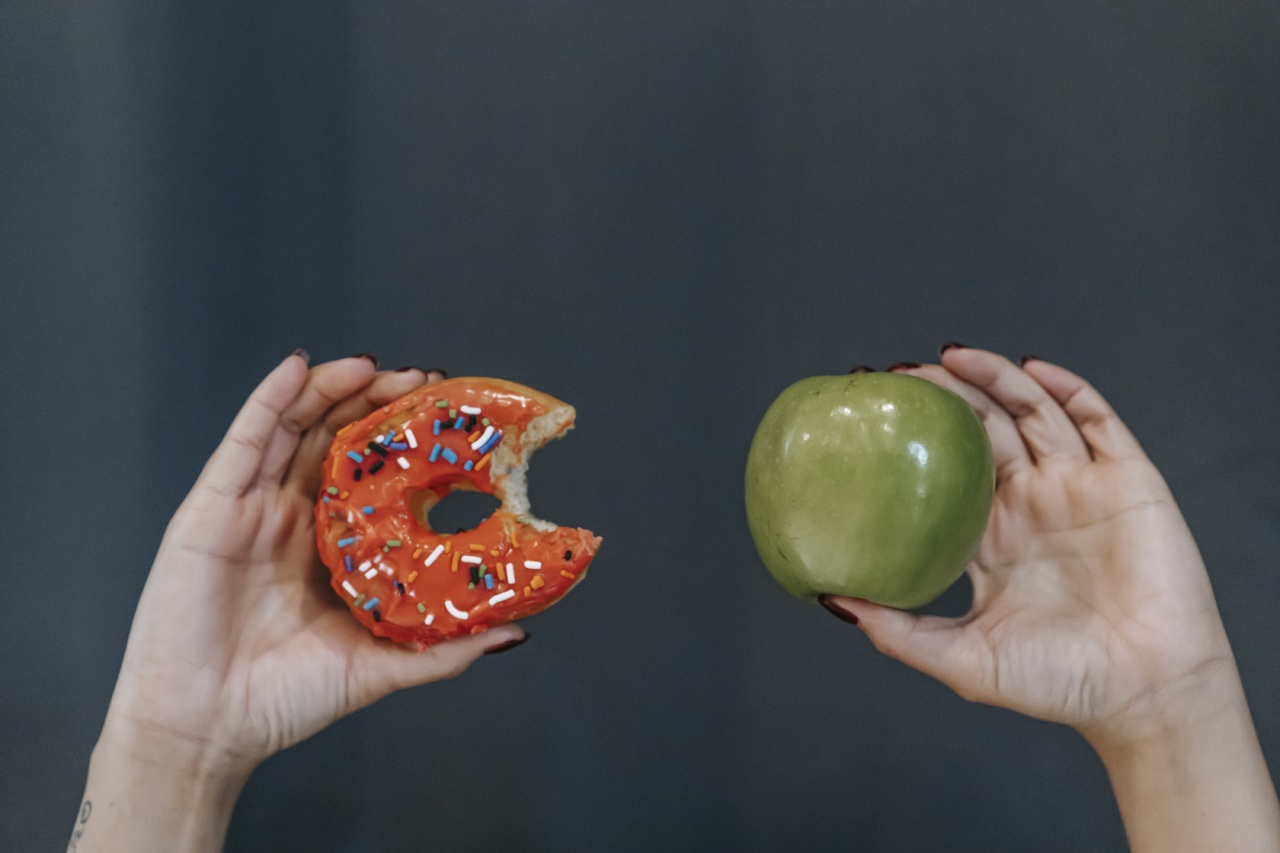When it comes to maintaining a healthy lifestyle, one of the biggest concerns for many individuals is their sugar intake.
Sugar has received a lot of negative attention in recent years, and many people believe that it should be completely eliminated from their diet. However, the question remains: can sugar be part of a balanced diet? In this article, we will explore the role of sugar in our diet and whether it can be included in a healthy eating plan.
The Role of Sugar in Our Diet
Sugar is a type of carbohydrate that our body needs for energy. It provides a quick source of fuel, which is particularly important for high-intensity activities and athletic performance.
Sugar is broken down into glucose in our body, which is then used by our cells for energy production.
In addition to providing energy, sugar also plays a role in the taste and palatability of many foods. It enhances the flavor of certain dishes, making them more enjoyable to eat.
This is why sugar is commonly used in desserts, pastries, and sweetened beverages.
The Difference Between Added Sugars and Natural Sugars
It is crucial to distinguish between added sugars and natural sugars when discussing the role of sugar in our diet. Added sugars are those that are added during food processing or preparation.
They are often found in processed foods such as candies, sodas, baked goods, and even certain savory items like sauces and dressings.
Natural sugars, on the other hand, are present in whole foods such as fruits and dairy products. These sugars come with valuable nutrients like vitamins, minerals, and fiber, which provide additional health benefits.
When consuming natural sugars, the body benefits from the accompanying nutrients, making them a healthier choice compared to added sugars.
The Negative Effects of Excessive Sugar Consumption
While sugar is an essential part of our diet, excessive consumption can have negative effects on our health. Here are some potential adverse effects of consuming too much sugar:.
1. Weight Gain and Obesity
Eating excessive amounts of sugar can lead to weight gain and even obesity. Foods high in added sugars are often calorie-dense and provide little satiety, causing overconsumption and a higher calorie intake.
2. Increased Risk of Chronic Diseases
High sugar intake has been linked to an increased risk of chronic diseases such as type 2 diabetes, heart disease, and certain types of cancer. Excessive sugar consumption can negatively impact insulin sensitivity and blood sugar control.
3. Poor Dental Health
Sugar is a primary contributor to tooth decay. Bacteria in the mouth feed on sugar, producing acids that erode tooth enamel and lead to cavities.
4. Nutrient Deficiencies
Consuming excessive amounts of sugar can displace nutrient-dense foods from the diet, leading to nutrient deficiencies. This can impact overall health and well-being.
Incorporating Sugar into a Balanced Diet
A balanced diet is one that includes a variety of foods from different food groups in appropriate portions.
While it is important to limit the consumption of foods high in added sugars, completely eliminating sugar from our diet is neither practical nor necessary.
Here are some tips on how to incorporate sugar into a balanced diet:.
1. Choose Natural Sugars
Opt for whole foods that naturally contain sugar, such as fruits, vegetables, and dairy products. These foods provide important nutrients and fiber without the drawbacks of added sugars.
2. Practice Portion Control
Enjoy sweets and treats in moderation, and be mindful of portion sizes. Rather than indulging in a large serving, savor a smaller portion and focus on the taste and enjoyment of the treat.
3. Read Food Labels
Pay attention to food labels and ingredient lists. Be aware of hidden sources of added sugars and prioritize foods with minimal or no added sugars.
4. Limit Sugary Beverages
Sugary beverages like soda and fruit juices can be a major source of added sugar in our diets. Opt for water, unsweetened tea, or other low-sugar options instead.
5. Balance Sugar Intake with Physical Activity
If you choose to indulge in foods with added sugars, balance your intake with regular physical activity. Exercise helps to burn off excess calories and contributes to overall health and well-being.
The Bottom Line
Sugar can be a part of a balanced diet if consumed in moderation and in the form of natural sugars found in whole foods.
However, it is important to limit the intake of foods high in added sugars, as excessive consumption can have negative effects on our health. By making mindful choices and practicing moderation, we can enjoy the occasional sweet treat as part of a healthy eating plan.





























